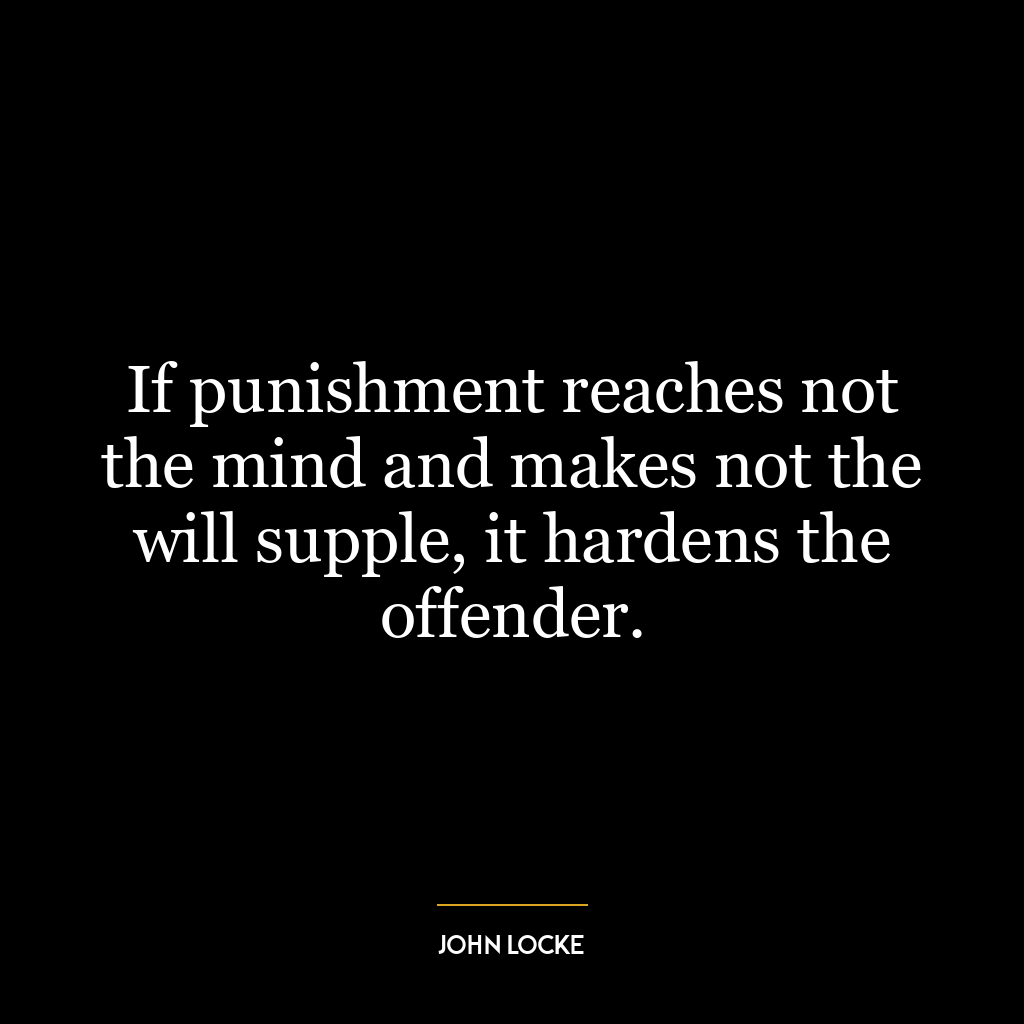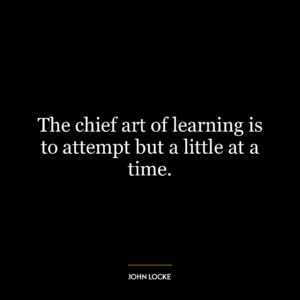If punishment reaches not the mind and makes not the will supple, it hardens the offender.
This quote suggests that punishment, if not properly administered or understood, can have the opposite effect of what is intended. The goal of punishment is often to correct a behavior or action, to make the individual realize their mistake and to deter them from repeating it. However, if the punishment does not reach the mind, meaning it does not cause the individual to reflect on their actions, or make the will supple, meaning it does not encourage them to change their behavior, it can instead harden the offender. This means that the individual may become resistant to the punishment, defiant, and potentially even more committed to their wrongful behavior.
This concept can be applied in many areas of today’s world. In the criminal justice system, for example, this could be seen as a critique of punitive justice, which focuses on punishing the offender rather than rehabilitating them. If the punishment does not lead to a change in mindset or behavior, it may just reinforce the individual’s criminal tendencies. This is why many advocate for restorative justice, which emphasizes understanding the harm caused, making amends, and learning to avoid such behavior in the future.
In the context of personal development, this quote could be viewed as a reminder of the importance of self-reflection and understanding the consequences of our actions. If we make a mistake, it is not enough to simply punish ourselves or feel guilty. We must understand why we made the mistake and how we can avoid making it again in the future. Otherwise, we may become hardened, repeating the same patterns and not growing as individuals.
In the realm of parenting or education, it suggests that if discipline or punishment doesn’t help a child understand what they did wrong and how to make better choices, it might just make them more defiant or resistant. This is why many experts recommend explaining the reasons behind rules and consequences, and emphasizing learning and growth over punishment.
In all these contexts, the focus should be on reaching the mind and making the will supple, encouraging reflection, understanding, and positive change, rather than simply administering punishment.















